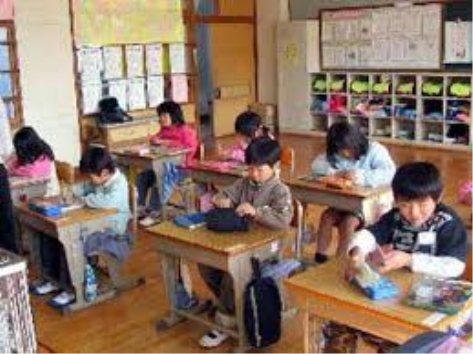
China has pledged to keep up heavy spending on education reform
in order to close its urban-rural education gap.
Among the priorities are hiring and retaining teachers in the
nation's poorer parts, and improving the quality of instruction, said Education
Minister Chen Baosheng.
Student achievement in China's rural areas has traditionally
lagged behind that of their urban counterparts, in part because low salaries
and barebones schools have made it difficult to attract teachers.
Over half of rural students drop out of school
after they finish nine years of compulsory education, either because they fail
the test to enter senior middle school or to get a job to support their
families.
To solve the teacher supply problem, China will
expand a village teacher support programme, Mr Chen told reporters on the
sidelines of China's annual legislative session yesterday.
Under the programme launched in 2015, provincial
governments provide additional funding to boost rural teachers' wages by
between 300 yuan (S$61.53) and 1,500 yuan per month. It has also been used to
build some 400,000 dorms to give rural teachers better living conditions and to
fund workplace training, Mr Chen added, noting that the government has spent
5.3 billion yuan to date.
"Today we have three million rural teachers,
and they are the backbone of our basic education, especially for our rural
children," he said. "This plan to support them means that rural
education has risen to become a national priority."
Improving access to and attainment in education is
a key step to realising China's goal of becoming a xiao kang or moderately
prosperous society free of extreme poverty by 2020.
More will also be done to address the high dropout
rate in rural areas, said Mr Chen.
Under its current Five-Year Plan for education,
China wants to ensure that all junior secondary school graduates in poor
regions who do not enter senior secondary education are funnelled into
vocational schooling.
Beijing has boosted government funding of senior
secondary schools in poor areas to raise the number of students who go on to
college. Currently, less than one in five studying at China's top universities
is from rural areas.
The "Made in China 2025" initiative
announced in 2015, that will see China speedily ramp up domestic manufacturing
capabilities, means there is a need for more tradesmen and artisans, said Mr
Chen.
To this end, the government has started a programme
to help at least one person in each poor family to master a skill, and will
promote closer cooperation between vocational schools and enterprises.
"In sum, we need to develop a good education
system, and a vocational education is one important part.
"We need to cultivate Einsteins, but we also
need to cultivate Edisons and Lu Bans," he said. Lu Ban was an ancient
Chinese carpenter who was also an engineer and inventor.
Posted on :
Mar 14, 2017